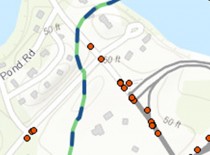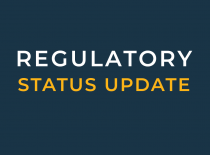Category: Newsletter
A new study conducted by the Cape Cod Commission focuses on the entrance and exit ramp intersections of the region's highway system, seeking to identify the highest crash intersections to better prioritize improvements and enhance roadway safety.
As Cape Cod towns work to address challenges related to affordable housing, climate and coastal resiliency, and economic stability, a Local Comprehensive Plan (LCP) can serve as a blueprint for a sustainable future. LCPs help communities navigate change while protecting the Cape's defining character and resources.
Earlier this month we welcomed more than four hundred people from Cape Cod, the Commonwealth, and beyond to the Wychmere Beach Club for our 10th annual OneCape. We had an exciting lineup of keynote speakers, breakout sessions, mobile workshops, and plenty of networking and connecting opportunities. With passionate and knowledgeable speakers and attendees, the summit undoubtedly left us all feeling inspired to take on the important work that lies ahead.
Strategies to adapt to the impacts and mitigate the causes of climate change took center stage at OneCape 2024, with speakers highlighting the state's ambitions for growing the climate tech sector and reaching net zero.
This year, the Cape Cod Commission recognized four Cape Codders for their outstanding contributions to the community. We were pleased to honor Dorothy Savarese, Dan Wolf, Senator Susan Moran, and State Representative Sarah Peake.
OneCape 2024 highlighted new data-driven initiatives and advancements in infrastructure that will shape the region’s future.
The 2024 Comprehensive Economic Development Strategy (CEDS), developed by the Cape Cod Commission and Barnstable County Economic Development Council, outlines a vision for a strong and vibrant Cape Cod—a vision that shaped discussions throughout OneCape 2024. The conference explored the region's potential to lead in climate technology and the blue economy, focusing on how these sectors could drive sustainable growth. Sessions emphasized the importance of strengthening Cape Cod's natural, built, and community systems to ensure economic prosperity. Additionally, strategies for supporting a year-round economy, from fisheries to local businesses, showcased a commitment to fostering inclusivity and long-term economic vitality across the regio
Ten years ago, OneCape was launched to address the region's pressing water quality challenges, with a focus on wastewater management. A decade later, the progress is evident, but the scope has expanded. This year's Summit highlighted the successes of the Cape Cod and Islands Water Protection Fund and focused on advancing efforts to protect our vital freshwater resources.
Housing, one of Cape Cod's most pressing challenges, was a major focus at OneCape 2024. Throughout the conference, speakers urged local leaders to collaborate on solutions to create more affordable, attainable housing for year-round residents. The event also showcased innovative ideas from national experts, from infill design to parking reform, as key strategies for tackling the region’s housing cris
This Regulatory Update provides a status on projects currently under review by the Cape Cod Commission. Visit www.capecodcommission.org/regulatory for a full overview of our Regulatory program and answers to frequently asked questions.




